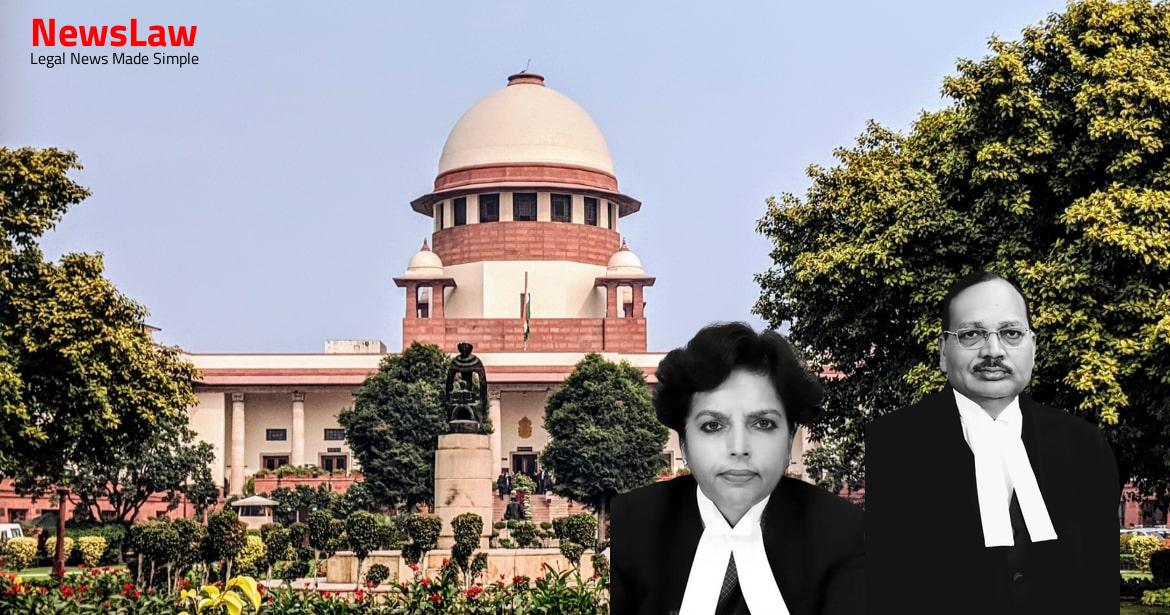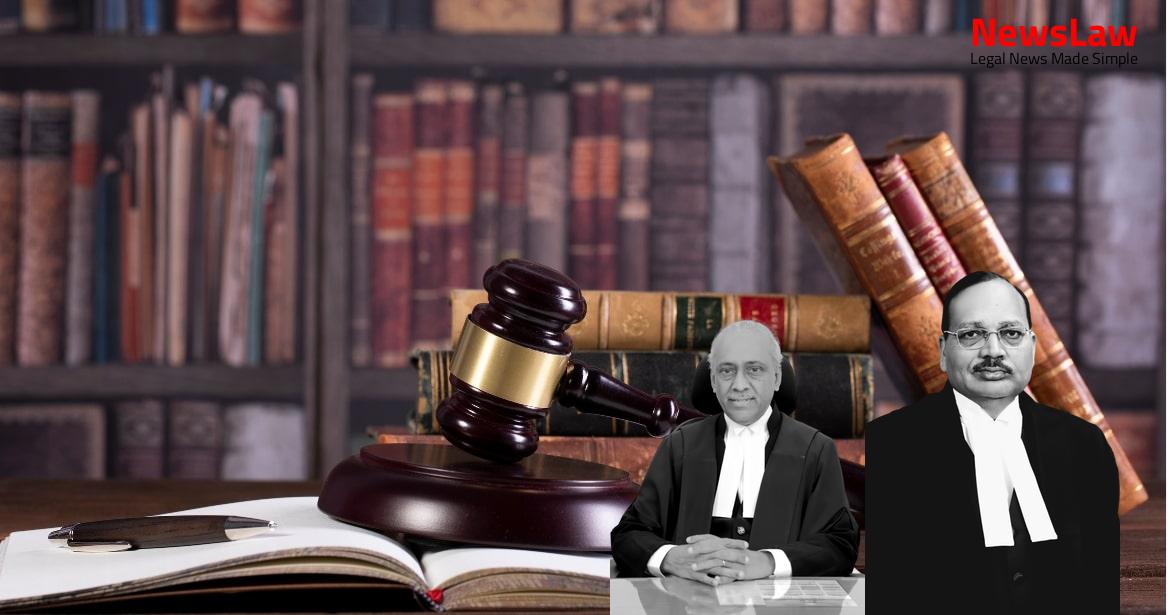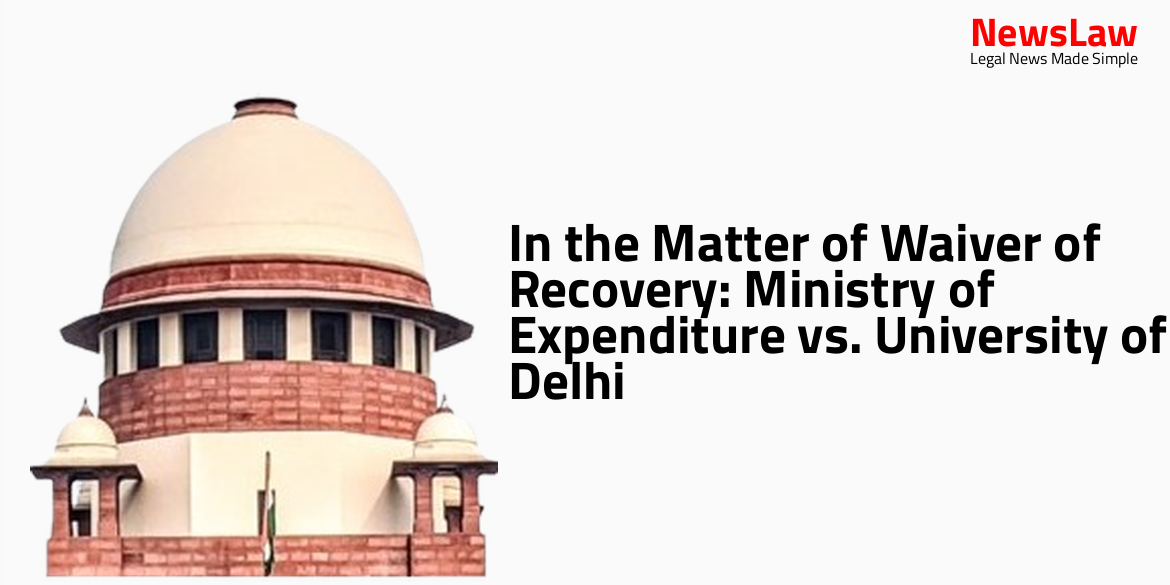Explore a significant legal case where the court engaged in a detailed analysis of the deduction for supervision charges in an Arbitral Award. The court’s scrutiny delves into the intricacies of contractual obligations and relevant circulars, shedding light on the concept of ‘patent illegality’ in the realm of arbitration law.
Facts
- During the pendency of the application, the Madhya Pradesh Re-organisation Act, 2000 came into force.
- The State of Madhya Pradesh terminated an agreement with the respondent-Company on 21 December, 1998.
- The respondent-Company raised disputes, including a claim for refund of Rs.1,72,17,613 for excess payment made for Sal seeds from 1981-82 to 31 December, 1998.
- The respondent-Company filed an application under Section 11(6) of the 1996 Act before the High Court of Madhya Pradesh for the appointment of an Arbitrator.
- The State of Madhya Pradesh assailed an order in 2006 by filing an appeal under Section 37 of the 1996 Act.
- An Arbitrator was appointed with the consent of both parties.
- The Arbitral Award in favor of the respondent-Company was issued on 17.02.2005, awarding a sum of Rs.7,43,46,772 along with interest.
- The respondent-Company filed a petition under Section 34 of the 1996 Act before the District Judge, Raipur, challenging the award.
- The agreement between the State of Madhya Pradesh and the respondent-Company was renewed on 30 April, 1992.
- A legislation enacted in 1987 led to annulment of agreements relating to forest produce.
- The High Court modified the award by changing the interest rate from 18% to 9% per annum from the date of the notice.
- The appeal by the State of Chhattisgarh was partially modified by the High Court, while the appeal by the respondent-Company was dismissed.
Also Read: Time as Essence of Contract in Sale Agreement: Legal Analysis
Arguments
- The appellant-State argues that the respondent-Company agreed to bear supervision charges as per the terms of the Agreement.
- The appellant contends that the respondent-Company did not object to the levy of supervision charges over the years and paid without protest.
- The appellant asserts that the deduction of supervision charges by the Sole Arbitrator was erroneous and not justified.
- The appellant cites the ruling in Delhi Airport Metro Express Pvt. Ltd. v. Delhi Metro Rail Corporation Ltd. to support the review of the domestic Award based on patent illegality.
- The appellant claims that the High Court failed to address the appellant’s plea regarding patent illegality noted in the appeal.
- The appellant refers to State of Maharashtra v. Hindustan Construction Company Limited to support the objection raised regarding deduction of supervision charges.
- The appellant-State raised the objection regarding ‘supervision charges’ before the learned Sole Arbitrator and in the Section 37 petition.
- The objection regarding ‘supervision charges’ should have been considered by the High Court.
- The appellant-State relied on the judgment in Lion Engineering Consultants v. State of Madhya Pradesh to address the objection raised by the respondent-Company.
- Learned counsel for the appellant-State argued that the objection was in fact raised in the Section 34 petition.
Also Read: Retirement Age of PTI/Sports Officer in University
Analysis
- The Court was required to examine whether in an appeal under Section 37 against an order refusing to set aside an Award, permission could be granted to amend the Memo of Appeal to raise new grounds.
- The appellant-State raised a plea on the levy of ‘supervision charges’ in the Section 37 petition, which remained unanswered by the High Court.
- The provision in Section 34(2)(b) of the 1996 Act empowers the Court to grant leave to amend the Section 34 application if required in the interest of justice.
- The agreements between the parties stipulated supervision charges in case of a failure to take delivery of Sal seeds within the stipulated time.
- The application of Circular dated 27 July, 1987, regarding supervision charges and its addition to the cost of Sal seeds was not questioned by the respondent-Company.
- The appellant-State’s objection on supervision charges was ignored by the Arbitral Tribunal, relying on the terms of the Agreement and Circular.
- The High Court should have applied Section 34(2A) of the 1996 Act in the appeal under Section 37, as grounds for setting aside an award are equally applicable.
- The respondent-Company cannot argue against the grounds available for setting aside an award under Section 34(2A) in an appeal under Section 37.
- The High Court’s failure to consider the grounds related to supervision charges and Circular was a manifest patent illegality in the Arbitral Award.
- Incorporation of additional grounds by way of amendment in a Section 34 petition post the prescribed period of limitation may be allowed if relevant for the court’s consideration.
- The concept of “patent illegality” in the context of public policy has been elaborated in Associate Builders v. Delhi Development Authority.
- Patent illegality broadly falls under the head of public policy and has been divided into three sub-heads.
- In Ssangyong Engineering and Construction Company Limited v. National Highways Authority of India, Justice R.F. Nariman outlined the limited scope of judicial interference in reviewing arbitral awards under the 1996 Act.
- The Court in Delhi Airport Metro Express Pvt. Ltd. discussed the facets of patent illegality in the context of arbitration awards.
- Failure of the Arbitrator to decide in accordance with the terms of the contract is considered as gross contravention of Section 28(3) of the 1996 Act.
- The Arbitral Tribunal is required to take into account the terms of the contract while making an Award.
- The oversight by the Arbitrator in not considering the contract terms amounts to ‘patent illegality’.
- ‘Patent illegality’ is apparent on the face of the Award and goes to the root of the matter.
Decision
- The impugned judgment dated 21 October, 2009 is modified to exclude deduction of ‘supervision charges’ recovered from the respondent-Company by the appellant-State
- The impugned Award, insofar as it permitted deduction of supervision charges, is quashed and set aside as it conflicts with the terms of the contract governing the parties and the relevant Circular
- The present appeal is partly allowed, and the parties will bear their own costs
Case Title: STATE OF CHHATTISGARH Vs. M/S SAL UDYOG(P) LTD (2021 INSC 705)
Case Number: C.A. No.-004353-004353 / 2010



